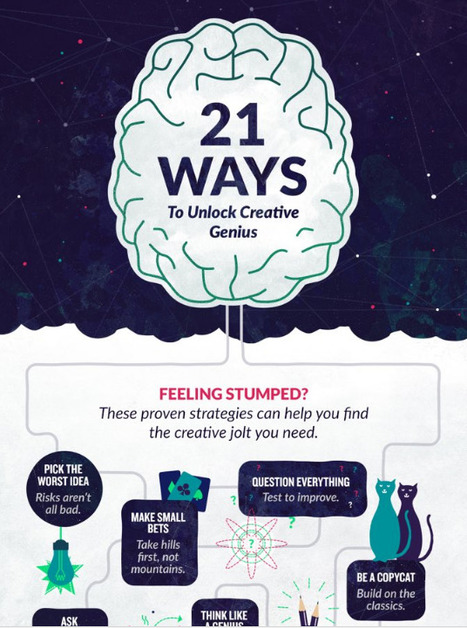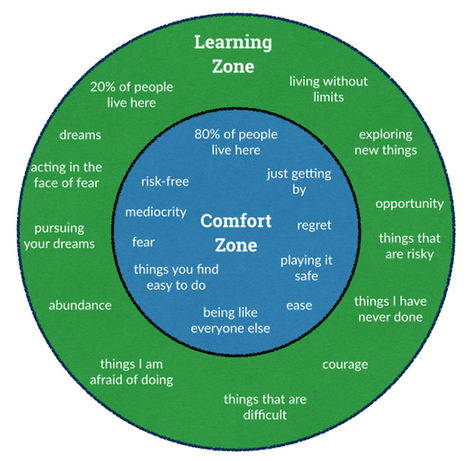Successful leaders know that they must get out of their comfort zone to succeed. Great leaders from history are those who have spent a large amount of their time outside their comfort zone.
.
Leaders who take risks and step into their learning zone are those that succeed. It’s only when you can give up what’s safe and familiar that you create opportunities and develop new capabilities. As you do, you expand your influence and gain the skills required to take on bigger and bigger challenges.
.
In this sense, leaders are self-made and not born, they are developed, not promoted. Leadership is a learned skill that is developed as you step out of your comfort zone.
.
Learn more:
.
- http://www.scoop.it/t/21st-century-learning-and-teaching/?tag=LeaderShip
Via
Patti Kinney,
Gust MEES




 Your new post is loading...
Your new post is loading...
















Click this link to access the Infographic:
https://pbs.twimg.com/media/C318Ja6XAAE7dOD.jpg:large
Learn more / En savoir plus / Mehr erfahren:
http://www.scoop.it/t/21st-century-learning-and-teaching/?tag=Creativity
https://gustmees.wordpress.com/?s=creativity